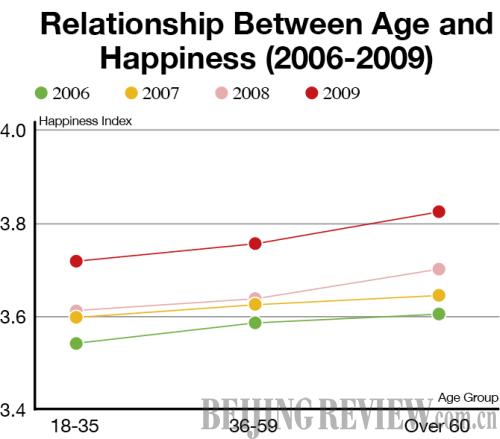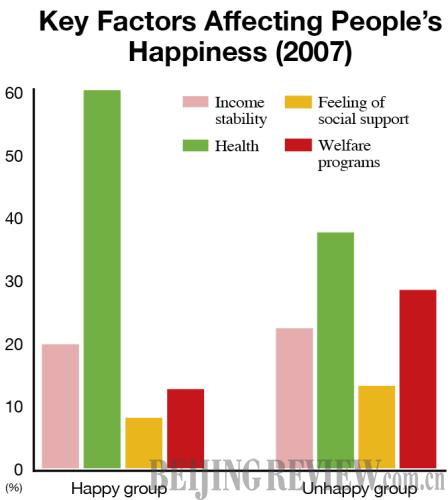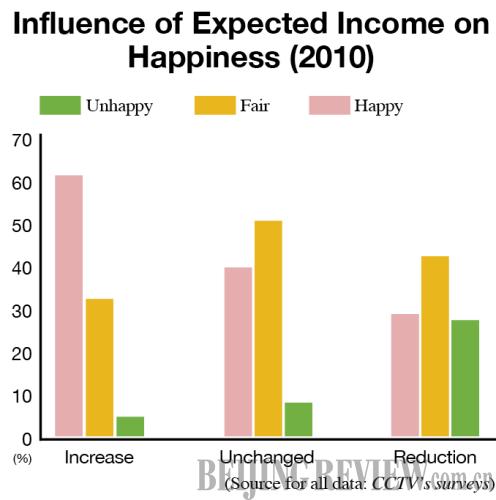|
Meanwhile, among "unhappy" and "very unhappy" people, insurance and social welfare were the most important factors. For these people, increasing social services, interpersonal interaction and the formation of communities could directly reduce their unhappiness.
Hindrances to happiness
The survey also shows that different groups of people have almost the same obstacles to feeling happy. Low income, housing problems and deficiencies in medical care are the three main elements that reduce people's perception of happiness. What this means is that the overall situation of most Chinese people is similar—they now have adequate food and clothing, but many other problems still exist.
Among "very unhappy" people, employment and housing were the biggest problems. This suggests that creating more and better paying jobs is the key to improving the situation of this group.
Double happiness?
Having a house and a car is seen by many Chinese as the symbol of a better life, but do they really add to happiness?
The survey shows that housing prices have an impact on people's happiness.
People who expect housing prices to fall are more likely to feel happy than others, whereas people who expect housing prices to rise by 5-10 percent are about as happy as other people on average. In contrast, among people who expect housing prices to increase by more than 10 percent, the percentage of "unhappy" and "very unhappy" people increases drastically.
The change in housing prices has two effects: When housing prices rise, people who don't own a house feel more economic pressure, thus lowering their sense of happiness. On the other hand, people who already own a house are happier, since the value of their property has increased.
The survey also asked about people's car-purchase plans. According to the survey, happiness is correlated with the price of the car a person plans to buy. For example, the percentage of very happy people is highest among people who expect to buy cars worth between 150,000 yuan ($23,000) and 300,000 yuan ($45,000). Generally speaking, the more expensive the car a respondent plans to buy, the happier the person is.
However, the percentage of unhappy people also increases with increasing car price. The survey shows that of people who plan to buy cars worth more than 300,000 yuan, 19.4 percent are unhappy, much higher than the percentage of people who plan to buy cars in other price ranges.
Ranking by region
A comparison of surveys from 2006 to 2009 shows that a province or region's "happiness ranking" can fluctuate over time. For example, Tibet ranked 18th overall in happiness in 2007, 19th in 2008 and first in 2009.
Economically developed areas don't have an obvious advantage in terms of happiness, and are, in fact, ranked in the middle of the list. Although developed areas show less fluctuation, people's feeling of happiness is no better than in undeveloped areas.
National wealth
Research on similar surveys found that a country's affluence has a strong positive impact on people's overall happiness. Wealthy countries, for example, often have happier populations than poorer countries, since richer countries can devote more resources to social welfare, health services, care for older people and equitable income distribution.
Increases of income, however, create a bigger happiness effect for poor people than for richer people. For this reason, China should try to increase the incomes of poorer families. The government should also increase public spending on health, environmental protection, and other areas that directly improve people's quality of life and happiness.



| 